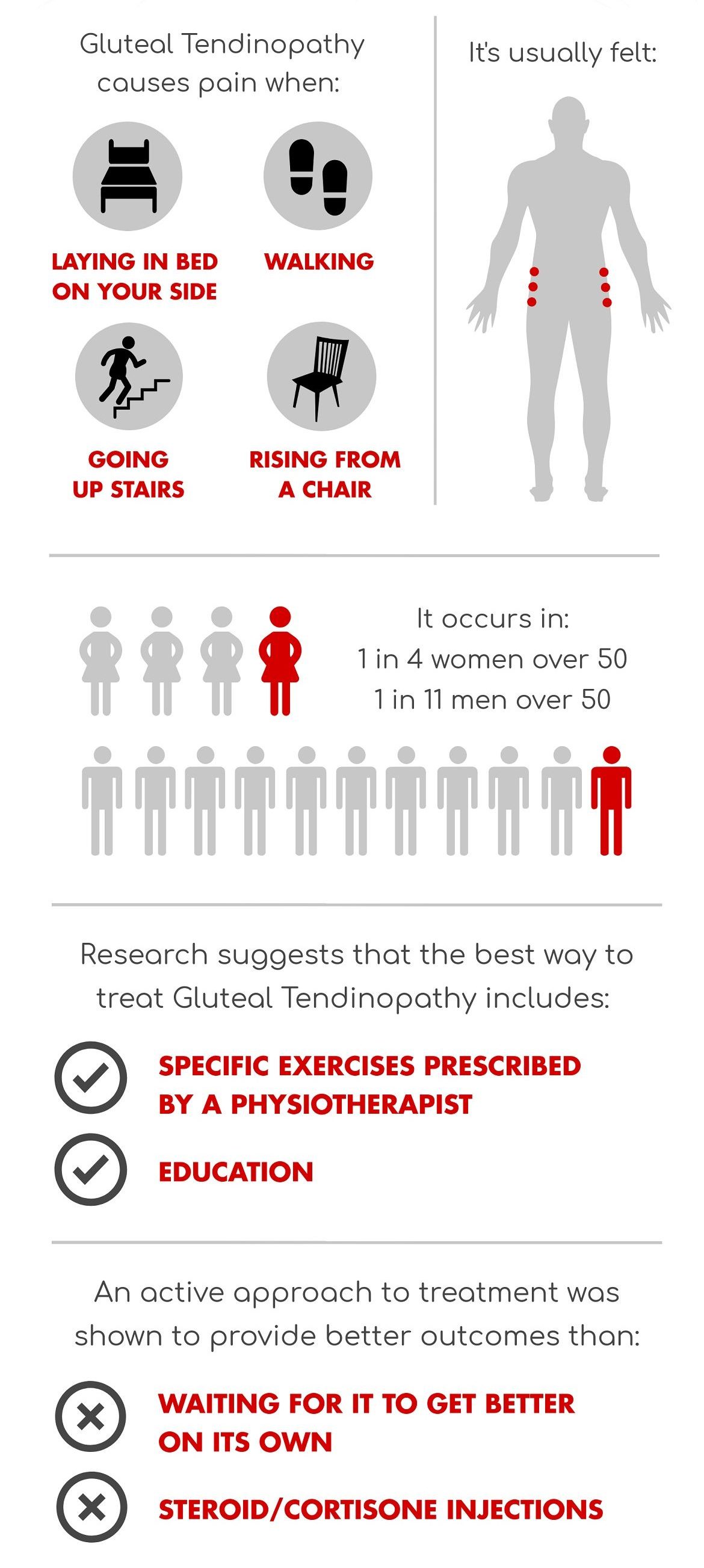Gluteal Tendinopathy is a common condition which causes pain around the outside of the hip. Pain is generally localized around the hip area, and does not usually extend below the knee. This condition used to be known as hip bursitis or trochanteric bursitis, however changes to the gluteal tendons are now known to be the main problem. Sometimes the bursa can also be involved in this condition, so it can also be called trochanteric pain syndrome.
New research is emerging in the treatment of tendinopathy which is changing how Physiotherapists manage this issue. It is becoming evident that Gluteal Tendinopathy should ideally be managed through patient education, lifestyle changes and home exercises.

This condition is more common in women, especially in the 40 – 60 year age bracket. Often it follows an increase in load, for example increasing walking or exercise. It sometimes occurs in younger people, again often with an increase in running or other high intensity exercise.
A correct diagnosis is integral to successfully treating Gluteal Tendinopathy, and without it, it is increasingly likely that the condition may remain unchanged or get worse instead of better.
A Physiotherapist experienced in the assessment and treatment of Gluteal Tendinopathy will perform a range of specific tests and measurements. If required, your Physiotherapist may refer you onto your GP for further imaging or tests.
The management of Gluteal Tendinopathy will include clear guidelines on what you can do during the day and overnight, as there are some common habits that may be making your issue worse. Management generally also involves a home exercise programme that is carefully graded, to gradually increase the strength of the gluteal tendons.
Some common stretches and exercises have been shown to make this condition worse, including glute stretches, clam exercises and aggressive soft tissue release using a foam roller.
A Physiotherapist with experience in evidence based, up to date treatment of this condition can offer an individual treatment plan, which can sometimes take 6-12 months to fully resolve.
A number of our Physiotherapists have a special interest in treating Gluteal Tendinopathy, and have undergone further education to stay up to date with the latest research and treatment. Find out more about how we treat Tendinopathy here.
To book see any of our experienced & qualified allied health staff about this issue, you can:
Dietitian Role Description Move for Better Health is seeking a new dietetics provider for our clinics. We...Read More
At Move for Better Health, one of our key goals is to help you move more. We...Read More
At Move for Better Health, we understand that optimising your health over the life span can be...Read More

